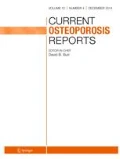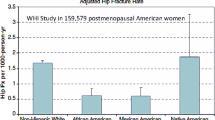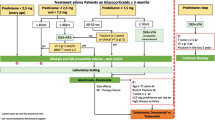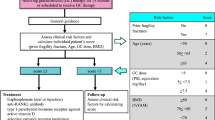Abstract
Fracture Liaison Services (FLS) have been demonstrated in many countries to provide an effective means to deliver secondary preventive care for patients presenting with fragility fractures. This review provides an update on journal articles, reports, guidelines and government policies, with relevance to FLS, which have been published during the period 2009–2012. International evidence of the extent and persistence of the secondary fracture prevention care gap has expanded during this period. Major professional and patient societies throughout the world, including the International Osteoporosis Foundation and the American Society for Bone and Mineral Research, have supported international initiatives to disseminate best practice. Health economic analysis of FLS has developed considerably, with a consistent theme from investigator-led and government analyses that FLS provide highly cost-effective care. Opportunities to close the care gap, in a systematic way, for unrecognised vertebral fracture sufferers are also considered.

Similar content being viewed by others
References
Papers of particular interest, published recently, have been highlighted as: • Of importance •• Of major importance
van Staa TP, Dennison EM, Leufkens HG, Cooper C. Epidemiology of fractures in England and Wales. Bone. 2001;29:517–22.
Global Coalition on Aging. Welcome to the Global Coalition on Aging. Available at: http://www.globalcoalitiononaging.com/. Accessed October 2012.
International Osteoporosis Foundation. Capture the fracture: a global campaign to break the fragility fracture cycle. Nyon. 2012.
Gallagher JC, Melton LJ, Riggs BL, Bergstrath E. Epidemiology of fractures of the proximal femur in Rochester, Minnesota. Clin Orthop. 1980;150:163–71.
Port L, Center J, Briffa NK, et al. Osteoporotic fracture: missed opportunity for intervention. Osteoporos Int. 2003;14:780–4.
McLellan A, Reid D, Forbes K, et al. Effectiveness of strategies for the secondary prevention of osteoporotic fractures in Scotland (CEPS 99/03). NHS Quality Improvement Scotland. 2004.
Edwards BJ, Bunta AD, Simonelli C, et al. Prior fractures are common in patients with subsequent hip fractures. Clin Orthop. 2007;461:226–30.
• Lih A, Nandapalan H, Kim M, et al. Targeted intervention reduces refracture rates in patients with incident non-vertebral osteoporotic fractures: a 4-year prospective controlled study. Osteoporos Int. 2011;22:849–58. Demonstrates that patients managed by a Fracture Liaison Service reduces refracture rates vs a valid control group.
•• Cooper MS, Palmer AJ, Seibel MJ. Cost-effectiveness of the Concord Minimal Trauma Fracture Liaison service, a prospective, controlled fracture prevention study. Osteoporos Int. 2012;23:97–107. Evidence that a Fracture Liaison Service delivers highly cost-effective care.
Bogoch ER, Elliot-Gibson V, Beaton DE, et al. Effective initiation of osteoporosis diagnosis and treatment for patients with a fragility fracture in an orthopaedic environment. J Bone Joint Surg Am. 2006;88:25–34.
Sander B, Elliot-Gibson V, Beaton DE, et al. A coordinator program in post-fracture osteoporosis management improves outcomes and saves costs. J Bone Joint Surg Am. 2008;90:1197–205.
McLellan AR, Gallacher SJ, Fraser M, McQuillian C. The fracture liaison service: success of a program for the evaluation and management of patients with osteoporotic fracture. Osteoporos Int. 2003;14:1028–34.
•• McLellan AR, Wolowacz SE, Zimovetz EA, et al. Fracture liaison services for the evaluation and management of patients with osteoporotic fracture: a cost-effectiveness evaluation based on data collected over 8 years of service provision. Osteoporos Int. 2011;22:2083–98. Evidence that a Fracture Liaison Service delivers highly cost-effective care.
Dell R, Greene D, Schelkun SR, Williams K. Osteoporosis disease management: the role of the orthopaedic surgeon. J Bone Joint Surg Am. 2008;90 Suppl 4:188–94.
Dell RM, Greene D, Anderson D, Williams K. Osteoporosis disease management: What every orthopaedic surgeon should know. J Bone Joint Surg Am. 2009;91 Suppl 6:79–86.
Elliot-Gibson V, Bogoch ER, Jamal SA, Beaton DE. Practice patterns in the diagnosis and treatment of osteoporosis after a fragility fracture: a systematic review. Osteoporos Int. 2004;15:767–78.
Giangregorio L, Papaioannou A, Cranney A, et al. Fragility fractures and the osteoporosis care gap: an international phenomenon. Semin Arthritis Rheum. 2006;35:293–305.
Greenspan SL, Wyman A, Hooven FH, et al. Predictors of treatment with osteoporosis medications after recent fragility fractures in a multinational cohort of postmenopausal women. J Am Geriatr Soc. 2012;60:455–61.
• Royal College of Physicians’ Clinical Effectiveness and Evaluation Unit. Falling standards, broken promises: report of the national audit of falls and bone health in older people 2010. 2011. An example of a comprehensive national audit program which has supported calls for national policy on FLS and reimbursment mechanisms for secondary fracture prevention.
Cheng H, Gary LC, Curtis JR, et al. Estimated prevalence and patterns of presumed osteoporosis among older Americans based on Medicare data. Osteoporos Int. 2009;20:1507–15.
Jennings LA, Auerbach AD, Maselli J, et al. Missed opportunities for osteoporosis treatment in patients hospitalized for hip fracture. J Am Geriatr Soc. 2010;58:650–7.
Gong HS, Oh WS, Chung MS, et al. Patients with wrist fractures are less likely to be evaluated and managed for osteoporosis. J Bone Joint Surg Am. 2009;91:2376–80.
Hollingworth SA, Gunanti I, Nissen LM, Duncan EL. Secondary prevention of osteoporosis in Australia: analysis of government-dispensed prescription data. Drugs Aging. 2010;27:255–64.
Teede HJ, Jayasuriya IA, Gilfillan CP. Fracture prevention strategies in patients presenting to Australian hospitals with minimal-trauma fractures: a major treatment gap. Intern Med J. 2007;37:674–9.
Fraser LA, Ioannidis G, Adachi JD, et al. Fragility fractures and the osteoporosis care gap in women: the Canadian Multicentre Osteoporosis Study. Osteoporos Int. 2011;22:789–96.
Hagino H, Sawaguchi T, Endo N, et al. The risk of a second hip fracture in patients after their first hip fracture. Calcif Tissue Int. 2012;90:14–21.
Leslie WD, Giangregorio LM, Yogendran M, et al. A population-based analysis of the post-fracture care gap 1996-2008: the situation is not improving. Osteoporos Int. 2012;23:1623–9.
Premaor MO, Pilbrow L, Tonkin C, et al. Low rates of treatment in postmenopausal women with a history of low trauma fractures: results of audit in a Fracture Liaison Service. QJM. 2010;103:33–40.
Barrack CM, McGirr EE, Fuller JD, et al. Secondary prevention of osteoporosis post minimal trauma fracture in an Australian regional and rural population. Aust J Rural Heal. 2009;17:310–5.
Giammattei F, Giammattei J, Howland V. Physician follow-up care for osteoporosis after fragility fractures. Phys Sportsmed. 2009;37:62–7.
Otmar R, Henry MJ, Kotowicz MA, et al. Patterns of treatment in Australian men following fracture. Osteoporos Int. 2011;22:249–54.
Augat P, Weyand D, Panzer S, Klier T. Osteoporosis prevalence and fracture characteristics in elderly female patients with fractures. Arch Orthop Trauma Surg. 2010;130:1405–10.
Bloomfield K, Singh J. Secondary prevention of vertebral fractures in a large New Zealand District Health Board. N Z Med J. 2011;124:26–33.
•• Marsh D, Akesson K, Beaton DE, et al. Coordinator-based systems for secondary prevention in fragility fracture patients. Osteoporos Int. 2011;22:2051–65. A position paper from the International Osteoporosis Foundation calling for global implementation of Fracture Liaison Services.
• Sale JE, Beaton D, Posen J, et al. Systematic review on interventions to improve osteoporosis investigation and treatment in fragility fracture patients. Osteoporos Int. 2011;22:2067–82. This systematic review highlights that 65 % of published models on systems to deliver post-fracture care report having a dedicated coordinator.
•• International Osteoporosis Foundation. Capture the Fracture: break the worldwide fragility fracture cycle. Available at: http://www.iofbonehealth.org/capture-fracture. 2012. Accessed November 2012. The World Osteoporosis Day Report for 2012 which describes the secondary prevention care gap reported in numerous countries and FLS systems that have been shown to close that gap. Capture the Fracture provides a call for specific actions from policymakers, professional organizations, patient societies, payers, and the private sector.
•• Eisman JA, Bogoch ER, Dell R, et al. Making the first fracture the last fracture: ASBMR task force report on secondary fracture prevention. J Bone Miner Res. 2012;27:2039–46. A summary of the American Society for Bone and Mineral Research Task Force Report on Secondary Fracture Prevention. The Task Force was comprised of 65 experts from 36 countries, demonstrating the FLS provides a global solution to the secondary fracture prevention care gap.
•• Eisman JA, Bogoch ER, Dell R, et al. Appendix A to 'Making the first fracture the last fracture': ASBMR task force report on secondary fracture prevention. Available at: http://onlinelibrary.wiley.com/doi/10.1002/jbmr.1698/suppinfo. Accessed November 2012. A ‘toolkit’ of resoruces to support clinicians and commissioners of services to implement FLS.
The National Falls Program in association with WorksOut. Up and about or falling short? A report of the findings of a mapping of services for falls prevention and management and fracture prevention in older people in Scotland. The Scottish Government. Edinburgh. 2012.
British Orthopaedic Association, British Geriatrics Society. The care of patients with fragility fracture. 2nd edition. 2007.
Royal College of Physicians. National audit of falls and bone health in older people. Available at: http://www.rcplondon.ac.uk/resources/national-audit-falls-and-bone-health-older-people. Accessed November 2012.
British Orthopaedic Association, British Geriatrics Society, Healthcare Quality Improvement Partnership. The National Hip Fracture Database. Available at: http://www.nhfd.co.uk/. Accessed November 2012.
National Osteoporosis Society. Protecting fragile bones: a strategy to reduce the impact of osteoporosis and fragility fractures in England/Scotland/Wales/Northern Ireland. 2009.
Department of Health in England. Prevention speech: old age is the new middle age, by the Rt Hon Alan Johnson MP, Secretary of State for Health, 21 May 2008. Available at: http://webarchive.nationalarchives.gov.uk/+/www.dh.gov.uk/en/MediaCentre/Speeches/DH_085020. Accessed November 2012.
Department of Health. Falls and fractures: effective interventions in health and social care. HMSO 2009.
Department of Health. Fracture prevention services: an economic evaluation. HMSO 2009.
British Geriatrics Society. Best Practice Tariff for hip fracture - making ends meet. Available at: http://www.bgs.org.uk/index.php?option=com_content&view=article&id=700:tariffhipfracture&catid=47:fallsandbones&Itemid=307. Accessed November 2012.
Department of Health. The operating framework for the NHS in England 2012–13. London: HMSO, 2011.
Department of Health. Payment by results guidance for 2012–13. Leeds: HMSO, 2012.
NHS Employers (2011) Summary of 2012/13 QOF changes. Available at: http://www.nhsemployers.org/SiteCollectionDocuments/Summary%20of%20QOF%20changes%20for%202012-13%20-ja21111.pdf. Accessed November 2012.
National Osteoporosis Society. The falls and fractures declaration. Available at: http://www.nos.org.uk/page.aspx?pid=1248. Accessed November 2012
Osteoporosis Canada. Osteoporosis: towards a fracture free future. Toronto: Osteoporosis Canada, 2011.
National Bone Health Alliance. National Bone Health Alliance: strong bones for america. Available at: http://www.nbha.org/. Accessed November 2012.
Osteoporosis New Zealand. Bone Care 2020: a systemic approach to hip fracture care and prevention for New Zealand. Wellington: Osteoporosis New Zealand, 2012.
Giles M, Van Der Kallen J, Parker V, et al. A team approach: implementing a model of care for preventing osteoporosis related fractures. Osteoporos Int. 2011;22:2321–8.
Inderjeeth CA, Glennon DA, Poland KE, et al. A multimodal intervention to improve fragility fracture management in patients presenting to emergency departments. Med J Aust. 2010;193:149–53.
Sale JE, Beaton DE, Elliot-Gibson VI, et al. A postfracture initiative to improve osteoporosis management in a community hospital in Ontario. J Bone Joint Surg Am. 2010;92:1973–80.
Majumdar SR, Johnson JA, Bellerose D, et al. Nurse case-manager vs multifaceted intervention to improve quality of osteoporosis care after wrist fracture: randomized controlled pilot study. Osteoporos Int. 2011;22:223–30.
Jaglal SB, Donescu OS, Bansod V, et al. Impact of a centralized osteoporosis coordinator on post-fracture osteoporosis management: a cluster randomized trial. Osteoporos Int. 2012;23:87–95.
Boudou L, Gerbay B, Chopin F, et al. Management of osteoporosis in fracture liaison service associated with long-term adherence to treatment. Osteoporos Int. 2011;22:2099–106.
Ahmed M, Durcan L, O'Beirne J, et al. Fracture liaison service in a non-regional orthopaedic clinic–a cost-effective service. Ir Med J. 2012;105(24):26–7.
Wallace I, Callachand F, Elliott J, Gardiner P. An evaluation of an enhanced fracture liaison service as the optimal model for secondary prevention of osteoporosis. JRSM Short Rep. 2011;2:8.
Carpintero P, Gil-Garay E, Hernandez-Vaquero D, et al. Interventions to improve inpatient osteoporosis management following first osteoporotic fracture: the PREVENT project. Arch Orthop Trauma Surg. 2009;129:245–50.
Woltman K, den Hoed PT. Osteoporosis in patients with a low-energy fracture: 3 years of screening in an osteoporosis outpatient clinic. J Trauma. 2010;69:169–73.
Huntjens KM, van Geel TC, Geusens PP, et al. Impact of guideline implementation by a fracture nurse on subsequent fractures and mortality in patients presenting with non-vertebral fractures. Injury. 2011;42 Suppl 4:S39–43.
• Huntjens KM, van Geel TA, Blonk MC, et al. Implementation of osteoporosis guidelines: a survey of 5 large fracture liaison services in the Netherlands. Osteoporos Int. 2011;22:2129–35. An evaluation of different practices employed by FLS in the same country. As more FLS are implemented, achieving standardization of care delivery could benefit from evidence-based guidelines specific to post-fracture care.
Premaor MO, Pilbrow L, Tonkin C, et al. Obesity and fractures in postmenopausal women. J Bone Miner Res. 2010;25:292–7.
Little EA, Eccles MP. A systematic review of the effectiveness of interventions to improve post-fracture investigation and management of patients at risk of osteoporosis. Implement Sci. 2010;5:80.
Sale JE, Beaton D, Posen J, et al. Key outcomes are usually not reported in published fracture secondary prevention programs: results of a systematic review. Arch Orthop Trauma Surg. 2011;Dec 11. [Epub ahead of print].
Sujic R, Gignac MA, Cockerill R, Beaton DE. A review of patient-centred post-fracture interventions in the context of theories of health behavior change. Osteoporos Int. 2011;22:2213–24.
• Ganda K, Puech M, Chen JS, et al. Models of care for the secondary prevention of osteoporotic fractures: a systematic review and meta-analysis. Osteoporos Int. 2012;Jul 25. [Epub ahead of print]. Secondary fracture prevention models of care are classified as a function of the intensity of intervention. The more intense intreventions achieve higher levels of BMD testing and initiation of treatment.
Lems WF. Clinical relevance of vertebral fractures. Ann Rheum Dis. 2007;66:2–4.
Cooper C, Atkinson EJ, O'Fallon WM, Melton III LJ. Incidence of clinically diagnosed vertebral fractures: a population-based study in Rochester, Minnesota, 1985-1989. J Bone Min Res. 1992;7:221–7.
Delmas PD, van de Langerijt L, Watts NB, et al. Underdiagnosis of vertebral fractures is a worldwide problem: the IMPACT study. J Bone Min Res. 2005;20:557–63.
Howat I, Carty D, Harrison J, et al. Vertebral fracture assessment in patients presenting with incident nonvertebral fractures. Clin Endocrinol. 2007;67:923–30.
Gallacher SJ, Gallagher AP, McQuillian C, et al. The prevalence of vertebral fracture amongst patients presenting with non-vertebral fractures. Osteoporos Int. 2007;18:185–92.
Jager PL, Slart RH, Webber CL, et al. Combined vertebral fracture assessment and bone mineral density measurement: a patient-friendly new tool with an important impact on the Canadian Risk Fracture Classification. Can Assoc Radiol J. 2010;61:194–200.
Chang HT, Chen CK, Chen CW, et al. Unrecognized vertebral body fractures (VBFs) in chest radiographic reports in Taiwan: a hospital-based study. Arch Gerontol Geriatr. 2012;55:301–4.
Chan PL, Reddy T, Milne D, Bolland MJ. Incidental vertebral fractures on computed tomography. N Z Med J. 2012;125:45–50.
Bazzocchi A, Spinnato P, Garzillo G, et al. Detection of incidental vertebral fractures in breast imaging: the potential role of MR localisers. Eur Radiol. 2012;Jun 12. [Epub ahead of print].
Department of Health. Herald fractures: clinical burden of disease and financial impact. London: HMSO, 2010.
Sosa Henriquez M, Saavedra Santana P. grupo de trabajo en osteoporosis de la Sociedad Espanola de Medicina I. [Prevalence of vertebral fractures in hip fracture patients – Article in Spanish]. Rev Clin Esp. 2007;207:464–8.
Disclosure
The author would like to disclose through Synthesis Medical Ltd in the UK and New Zealand, he has received honoraria for speaking at meetings on the subject of secondary fracture prevention and Fracture Liaison Services. During the period 2007–2012; these talks have been sponsored by MSD [Asia and NZ] and Roche UK.
Author information
Authors and Affiliations
Corresponding author
Rights and permissions
About this article
Cite this article
Mitchell, P.J. Best Practices in Secondary Fracture Prevention: Fracture Liaison Services. Curr Osteoporos Rep 11, 52–60 (2013). https://doi.org/10.1007/s11914-012-0130-3
Published:
Issue Date:
DOI: https://doi.org/10.1007/s11914-012-0130-3




